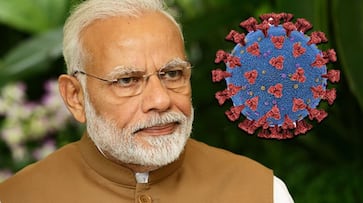PM Modi uses the concept of restraint and resolve to curb the spread of Coronavirus
Bengaluru: The janata curfew, as Prime Minister Narendra Modi said, is a concept which is “A curfew of the people, by the people, for the people to fight coronavirus.”
The curfew will take place the coming Sunday, from 7 am to 9 pm. The PM has exhorted people to stay indoors while those who are working in essential services like police, medicine industry, firefighters can move around.
The entire idea to urge people to stay indoors is to ensure there is no hobnobbing, social interaction, thereby mitigating the chances of coronavirus spread.
Interestingly, the PM used two words – Resolve and Restraint which are the sum and substance or the gravamen of the curfew.
The resolve is to make a firm conviction to oneself that one will work hard against the spread of the infection agent and help the other citizens by not promulgating the virus.
Surely, this resolve comes from a deep sense of sympathy and empathy for fellow citizens.
Next comes restraint. To restrain is to abstain. The PM’s exhortation to his countrymen not to move around or congregate in large numbers is a must to contain the spread.
To isolate or quarantine is a wonderful tool to limit the virus to the affected, and at the same time, take medication to kill it.
Restraint also applies to travelling. At a time when coronavirus can spread through coughing and sneezing, it is imperative that one confines to one’s home and not take up unnecessary jaunts.
Of course, when the PM said that those in essential services have to move around, he was only acknowledging the fact that such isolations don’t apply to them.
The PM also exhibited remarkable translation of his preaching into practice when he, using technology, spoke to SAARC members through videoconferencing.
By using these tools of social distancing and self-imposed refrainment, Modi effectively uses different strategies to spread care and concern for others, and at the same time, mitigate the multiplication of the deadly virus.
Last Updated Mar 20, 2020, 12:19 PM IST









![Salman Khan sets stage on fire for Anant Ambani, Radhika Merchant pre-wedding festivities [WATCH] ATG](https://static-gi.asianetnews.com/images/01hr1hh8y86gvb4kbqgnyhc0w0/whatsapp-image-2024-03-03-at-12-24-37-pm_100x60xt.jpg)
![Pregnant Deepika Padukone dances with Ranveer Singh at Anant Ambani, Radhika Merchant pre-wedding bash [WATCH] ATG](https://static-gi.asianetnews.com/images/01hr1ffyd3nzqzgm6ba0k87vr8/whatsapp-image-2024-03-03-at-11-45-35-am_100x60xt.jpg)


